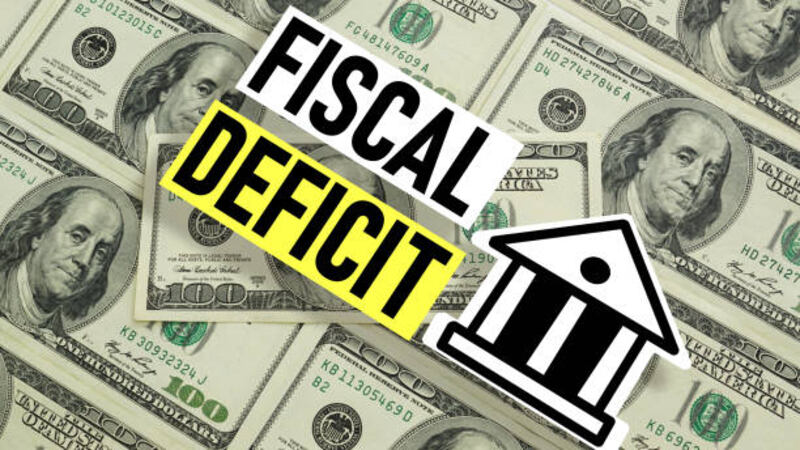Credit Score Improvement: Smart and Easy Steps to Building Credit
Nov 23, 2023 By Susan Kelly
Understanding Your Credit Score:
Before you can start improving your credit score, you need to understand what it is and how it works. Your credit score, a three-digit number, is a representation of your creditworthiness, based on your credit history. Lenders and other financial institutions use it to decide whether to give you credit or a loan. A higher score means you are more likely to repay your debts, making you attractive to lenders. It's important to monitor your credit score regularly to understand where you stand financially.
Understanding Your Credit Score Factors:

Your credit score is calculated based on several key factors, each contributing a specific percentage to your overall score.
- Payment History (35%): This is the most critical factor, in capturing your history of timely or delinquent payments. Paying bills on time can significantly improve your score.
- Length of Credit History (15%): Longer credit histories tend to improve your score as it provide more data about your spending behavior.
- Credit Mix (10%): Having a diverse mix of credit such as credit cards, mortgages, or auto loans can positively influence your score.
- New Credit (10%): Opening many new credit accounts in a short period can lower your score as it may signify increased risk to lenders.
Steps to Improve Your Credit Score:
Reducing credit utilization:
Reducing your credit utilization is another efficient method to enhance your credit score. Credit utilization refers to the percentage of your total available credit that you're currently using. A lower rate, preferably below 30%, is optimal for a good credit score. This demonstrates to lenders that you're disciplined in managing your credit and not overly reliant on debt.
Strategies to decrease your credit utilization could include paying down outstanding balances, keeping credit accounts open even if you don't use them frequently, or asking for a credit limit increase.
Not closing old credit cards:
Keeping old credit cards open, even if they're not in regular use, can positively impact your credit score in two ways.
- Closing a credit card can increase your credit utilization ratio, which can in turn, negatively affect your score.
- Old credit cards contribute to a longer credit history, which is favorable for your credit score. It's crucial to manage these old cards wisely.
- Make sure that the card doesn't carry high annual fees, which could outweigh the potential credit score benefits.
And even if you're not using the card for regular purchases, ensure to keep the account active by making occasional small transactions and paying them off immediately.
Regularly checking credit reports for errors:
Regularly checking your credit reports for errors is a vital step in maintaining a healthy credit score. Mistakes or inaccuracies in your credit report can lead to a lower score, which could affect your ability to secure new credit or get favorable interest rates. These errors could range from incorrect personal information to inaccurate account details or fraudulent accounts opened under your name.
To ensure your credit report is correct, you should request a free annual credit report from each of the three major credit bureaus (Experian, TransUnion, and Equifax) and thoroughly review them for any inaccuracies. If you find any errors, immediately report them to the respective credit bureau and the institution that provided the inaccurate information. Correcting these errors can help you improve your credit score.
Building Credit Through Smart Financial Habits:

- Importance of budgeting:
Budgeting plays a pivotal role in managing your finances and consequently building credit. By keeping track of your income and expenses, you can make informed decisions on how to allocate your funds. A well-thought-out budget can ensure you have enough money for your essential expenses, savings, and debt repayments.
Regular, on-time payments of debts, a crucial factor in credit score calculation, become easier with a good budgeting system. Besides, budgeting helps prevent overspending, which can lead to high credit utilization, negatively affecting your credit score.
- Avoiding unnecessary debt:
While credit can be a useful financial tool, it's important to avoid unnecessary debt. Unnecessary debt refers to borrowing for non-essential purchases or expenses that you can otherwise afford or save for.
High levels of such debt can lead to financial strain, and potentially, missed payments, which can seriously harm your credit score. It's therefore crucial to only borrow what you can afford to repay and to reserve credit for important financial objectives. This could include things like investing in education, buying a home, or covering emergency expenses.
- Importance of saving for emergencies:
Saving for emergencies serves as a financial safety net, protecting you from unforeseen expenses and providing much-needed stability during unexpected situations like job loss, medical emergencies, or sudden home and car repairs.
This fund acts as a buffer, ensuring that an emergency expense doesn't derail your finances and result in the need to take on high-interest debt, which could harm your credit score. With an emergency fund, you're less likely to miss payments on any existing debts, which is pivotal in maintaining a healthy credit score.
Conclusion:
Maintaining a healthy credit score is a multifaceted process that requires astute financial management. It necessitates regularly monitoring your credit reports, keeping credit utilization low, making timely payments, and avoiding unnecessary debt. A well-managed budget and a robust emergency fund are also crucial components of this financial discipline. By adhering to the principles outlined above, you are likely to notice an improvement in your credit score over time, giving you greater financial opportunities and flexibility. Good credit is a journey, not a destination, and the habits you develop today can pave the way for your future financial stability and success.

Triston Martin Feb 05, 2024
How Can You Pay Your Property Tax Bill?
81464

Triston Martin Dec 02, 2023
Square Footage Showdown Advertisements vs. Tax Records
40992

Susan Kelly Jan 03, 2024
Investors' Obsession With Profitability And Why It Matters
75802

Susan Kelly Oct 14, 2023
What Credit Score Do I Need to Buy a House?
77324

Triston Martin Dec 09, 2023
Low-Risk Dividend Stocks to Buy
27147

Susan Kelly Nov 11, 2023
All About: What Is Contribution Margin?
80795

Susan Kelly Nov 23, 2023
Credit Score Improvement: Smart and Easy Steps to Building Credit
54338

Susan Kelly Oct 28, 2023
Watch TV Shows Online for Free
83807